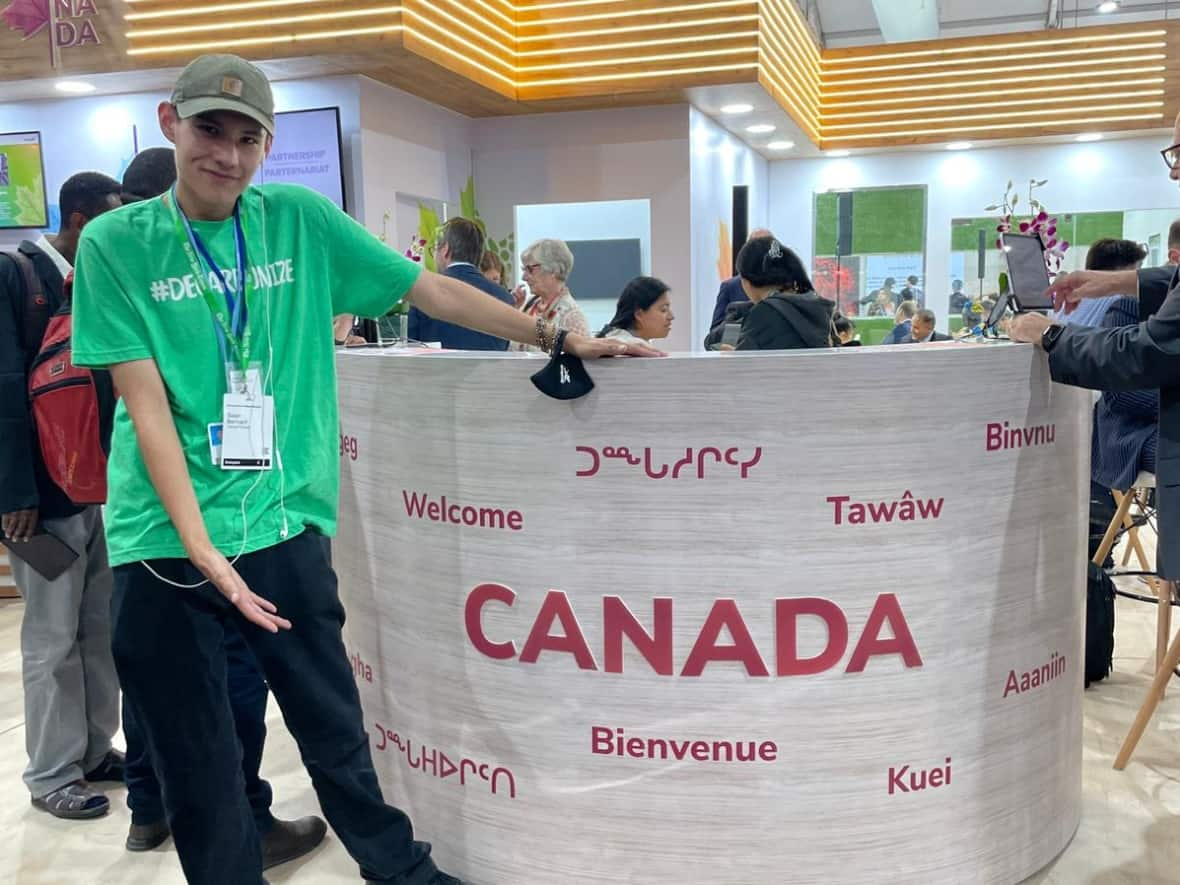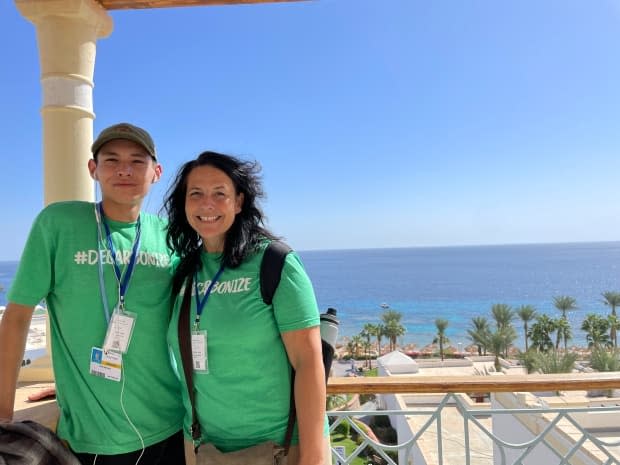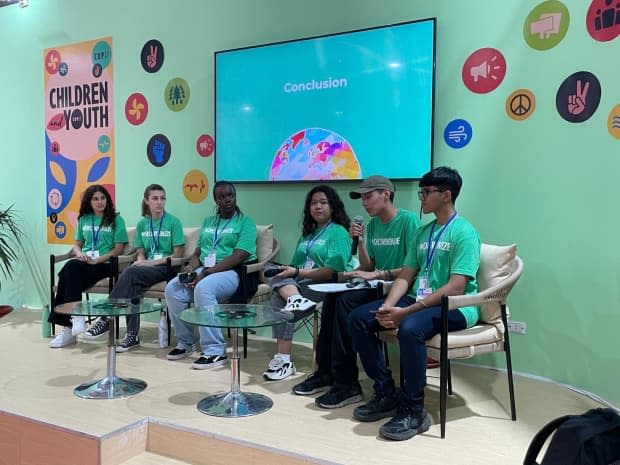High school student from northern Sask. First Nation representing youth at COP27 in Egypt

A high school student from a First Nation in northern Saskatchewan is representing Indigenous communities on the world stage.
Sean Bernard, a Grade 12 student from Waterhen Lake First Nation, about 290 kilometres northwest of Saskatoon, is in Egypt this week to attend COP27, the United Nations Climate Change Conference.
Bernard is a youth delegate, representing the youth of the world as well as Indigenous communities across North America.
"As soon as I heard about this, I took it on right away because I knew how important it is for my community and for people who are Indigenous from Canada," he said on CBC Radio's Morning Edition Wednesday.
Bernard, who attends Carpenter High School in Meadow Lake, Sask., is enrolled in a virtual course called Northern Lifestyles 20, in which students "investigate and negotiate personal, cultural, and community identity and sustainability through skills development, cultural experience, and experiential learning," according to a news release issued by the Northwest School Division last month.
It was through this course that Bernard was selected to attend the UN conference.

"I see a phenomenal student," said Tanis Crawford, who teaches the course and is joining Bernard in Egypt.
"I saw a student that instantly agreed to take on this challenge of crossing the world to represent North American youth and North American Indigenous voices."
On Thursday, Bernard will be part of a presentation to world leaders that discusses youth and future generations.
Bernard has been impressive enough throughout the conference that he also earned an invite to speak at the health pavilion, Crawford said.
He is also among five youths given exclusive accreditation that, according to Crawford, grants him access to the major negotiations that are taking place.
"The five youths that were chosen are representing the youths of the world," she said. "They have a place at the negotiation table, and they have a place [to speak] their demands."

While in Egypt, he has also met other Indigenous people to discuss how climate change is affecting their communities and how to take action.
Canada's Changing Climate Report, released in 2019, broke down how climate change will affect the country's different regions. The chapter about the Prairies notes that climate change may exacerbate social inequities, specifically identifying Indigenous people as one of the groups that may be more vulnerable.
The Prairie section also says that Indigenous knowledge is of "tremendous value" for climate science and adaptation planning.
"Many Indigenous peoples are accustomed and adaptive to environmental change, with Indigenous knowledge providing important perspectives on the relationship between human activity and the environment," the report says.
Bernard has already seen the effects of climate change at home, through drought, wildfires and worsening water quality.
Once, a wildfire forced people in Waterhen Lake First Nation to evacuate the community for a year, he said.
He plans to bring what he has learned home with him to initiate the change his community — and others — need.
"I want to take on that advocacy [role], where I can tell my community we need to be the ones that make these decisions," he said.
"We know what's best for us because we are part of these communities.… I just need to bring that to us, so we can amplify our voices for Indigenous people."


